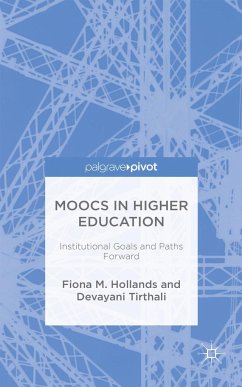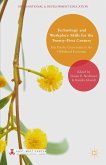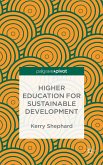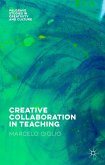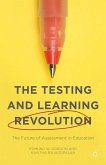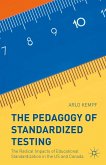Based on interviews with almost one hundred of the world's leading educators, policymakers, and businesspeople involved in MOOCs and online learning, the authors investigate the goals of the institutions offering MOOCs and assess the evidence as to whether these goals are being achieved.
Hinweis: Dieser Artikel kann nur an eine deutsche Lieferadresse ausgeliefert werden.
Hinweis: Dieser Artikel kann nur an eine deutsche Lieferadresse ausgeliefert werden.
Selected by Choice magazine as an "Outstanding Academic Title" for 2016
"This is precisely the kind of thought-provoking work necessary at this crucial juncture in educational history. Quite simply, a must-read for college administrators, faculty, students, parents, and employers alike. ... Summing Up: Essential. General readers, advanced students, faculty, and professionals." (J. R. Mitrano, Choice, Vol. 53 (9), May, 2016)
"It is hard to provide a perspective in the middle of the kind of technological whirlwind that MOOCs created in higher education, but that is just what Hollands and Tirthali have been able to do. Through interviews with key players and a wide-scale reading of the literature, they give us a much-needed, realistic picture of what MOOCs are, what is real and what is hype, the impact they have had to date, andthe changes they may bring to higher education. If you read only one book on MOOCs, this is the one to read." - Lori Breslow, Senior Lecturer, MIT Sloan School of Management and Founding Director Emeritus, MIT Teaching and Learning Laboratory, Massachuetts Institute of Technology, USA
"This book is a must-read for all those interested in understanding the evolving role of MOOCs in higher education. Hollands and Tirthali show how MOOCs have developed as the result of economic and social pressures within the field of higher education, look at the economics of MOOC production and distribution, and examine the extent to which MOOCs are helping institutions reach their goals of increasing access and revenues. Both readable and timely, the book provides a nuanced perspective on an educational innovation that, in one form or another, seems to be here to stay." - Susan Lowes, Director, Research and Evaluation, Institute for Learning Technologies, Teachers College, Columbia University,USA
"This is precisely the kind of thought-provoking work necessary at this crucial juncture in educational history. Quite simply, a must-read for college administrators, faculty, students, parents, and employers alike. ... Summing Up: Essential. General readers, advanced students, faculty, and professionals." (J. R. Mitrano, Choice, Vol. 53 (9), May, 2016)
"It is hard to provide a perspective in the middle of the kind of technological whirlwind that MOOCs created in higher education, but that is just what Hollands and Tirthali have been able to do. Through interviews with key players and a wide-scale reading of the literature, they give us a much-needed, realistic picture of what MOOCs are, what is real and what is hype, the impact they have had to date, andthe changes they may bring to higher education. If you read only one book on MOOCs, this is the one to read." - Lori Breslow, Senior Lecturer, MIT Sloan School of Management and Founding Director Emeritus, MIT Teaching and Learning Laboratory, Massachuetts Institute of Technology, USA
"This book is a must-read for all those interested in understanding the evolving role of MOOCs in higher education. Hollands and Tirthali show how MOOCs have developed as the result of economic and social pressures within the field of higher education, look at the economics of MOOC production and distribution, and examine the extent to which MOOCs are helping institutions reach their goals of increasing access and revenues. Both readable and timely, the book provides a nuanced perspective on an educational innovation that, in one form or another, seems to be here to stay." - Susan Lowes, Director, Research and Evaluation, Institute for Learning Technologies, Teachers College, Columbia University,USA

